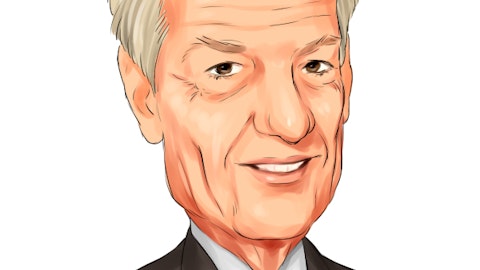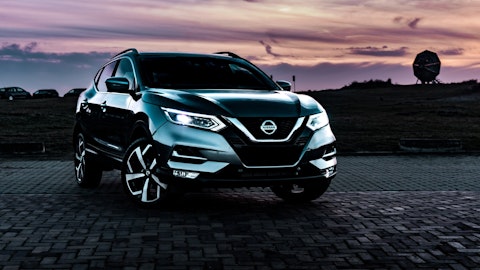RV Capital, an investment management firm, published its “Business Owner Fund” second quarter 2022 investor letter – a copy of which can be seen here. The NAV of the Business Owner Fund was €600.80 as of 30 June 2022. The NAV decreased 40.2% since the start of the year and increased 505.5% since inception on 30 September 2008. The compound annual growth rate since inception is 14.0%. Go over the fund’s top 5 positions to have a glimpse of its finest picks for 2022.
In its Q2 2022 investor letter, RV Capital mentioned Carvana Co. (NYSE:CVNA) and explained its insights for the company. Founded in 2012, Carvana Co. (NYSE:CVNA) is a Tempe, Arizona-based used car dealers company with a $3.4 billion market capitalization. Carvana Co. (NYSE:CVNA) delivered a -91.69% return since the beginning of the year, while its 12-month returns are down by -93.18%. The stock closed at $19.27 per share on October 07, 2022.
Here is what RV Capital has to say about Carvana Co. (NYSE:CVNA) in its Q2 2022 investor letter:
“I wrote about Carvana as recently as my 2021 letter. In the short period of time since, the stock has lost much of its value. It has been a traumatic experience, so to skip straight to the punchline, no I have not enjoyed the decline in the share price.
Oddly enough given all that has happened, there is not much I would change in my 2021 letter. There was, however, one enormous mistake on my part which I would like to be completely clear about. I underestimated the financial leverage of the company. I hate debt and seek to avoid it at the companies I invest in. At companies, where debt is an unavoidable part of the business, I try to make sure that it is low both in absolute terms and relative to peers. And yet, an impartial observer looking at the financial situation of Carvana today might reasonably conclude that it will run out of money. This is not the way that I seek to invest – period.
In my defence, the company was not overly indebted at the time we invested. The debt came about through a series of coincidences – some under the company’s control, others not. The company over-hired towards the end of 2021, like many companies, in anticipation of strong growth in 2022. This growth did not materialise due to a combination of the re-emergence of Covid-19, winter storms, and unprecedented inflation in the price of used cars. The upshot was spiralling losses and growing debt. In addition, a long-planned acquisition came to fruition at the worst possible time from a financing perspective. It bought Adesa’s physical used car auction business. Whilst the acquisition makes a lot of sense in my view given Adessa’s valuable real estate footprint, and Carvana likely had little choice but to complete the deal then or lose it forever, it greatly increased the indebtedness from already elevated levels given the spiralling operating losses…” (Click here to see the full text)

Photo by Sara Kurfeß on Unsplash
Our calculations show that Carvana Co. (NYSE:CVNA) fell short and didn’t make it on our list of the 30 Most Popular Stocks Among Hedge Funds. Carvana Co. (NYSE:CVNA) was in 47 hedge fund portfolios at the end of the second quarter of 2022, compared to 48 funds in the previous quarter. Carvana Co. (NYSE:CVNA) delivered a -23.20% return in the past 3 months.
In September 2022, we also shared another hedge fund’s views on Carvana Co. (NYSE:CVNA) in another article. You can find other investor letters from hedge funds and prominent investors on our hedge fund investor letters 2022 Q2 page.
Suggested Articles:
Disclosure: None. This article is originally published at Insider Monkey.





